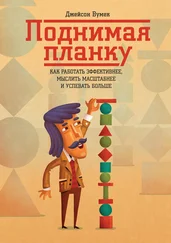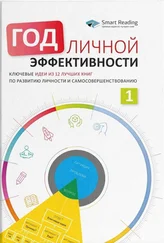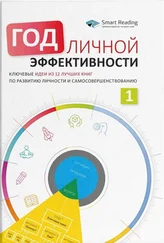Heine, Steven J. Cultural Psychology. New York: W. W. Norton, 2008.
Straub, Kath. “Mind the Gap: On the Appropriate Use of Focus Groups and Usability Testing in Planning and Evaluating Interfaces.” In Human Factors International: Free Resources Newsletter, September 2004.
Morris, Michael W., and Richard E. Nisbett. “Tools of the Trade: Deductive Reasoning Schemas Taught in Psychology and Philosophy.” In Rules for Reasoning”, edited by Richard E. Nisbett. Hillsdale, NJ: Lawrence Erlbaum, 1993.
Cheng, Р.W., and К.J. Holyoak. “Pragmatic Reasoning Schemas.” Cognitive Psychology 17 (1985): 391-416.
Там же.
Lehman, Darrin R., and Richard E. Nisbett. “A Longitudinal Study of the Effects of Undergraduate Education on Reasoning.” Developmental Psychology 26 (1990): 952-60.
Lehman, Darrin R., and Richard E. Nisbett. “A Longitudinal Study of the Effects of Undergraduate Education on Reasoning.” Developmental Psychology 26 (1990): 952-60.
Graham, Angus С. Later Mohist Logic, Ethics, and Science. Hong Kong: Chinese U, 1978.
Там же.
Chan, W. T. “The Story of Chinese Philosophy.” In The Chinese Mind: Essentials of Chinese Philosophy and Culture, ed. by C.A. Moore. Honolulu: East-West Center Press, 1967.
Peng, Kaiping. “Naive Dialecticism and Its Effects on Reasoning and Judgment About Contradiction.” PhD dissertation, University of Michigan, 1997.
Ji, Li-Jun, Yanjie Su, and Richard E. Nisbett. “Culture, Change and Prediction.” Psychological Science 12 (2001): 450-56.
Ji, Li-Jun, Zhiyong Zhang, and Tieyuan Guo. “To Buy or to Sell: Cultural Differences in Stock Market Decisions Based on Stock Price Trends.” Journal of Behavioral Decision Making 21 (2008): 399-413.
Peng, Kaiping, and Richard E. Nisbett. “Culture, Dialectics, and Reasoning About Contradiction.” American Psychologist 54 (1999): 741-54.
Norenzayan, A., E. E. Smith, B. J. Kim, and R. E. Nisbett. “Cultural Preferences for Formal Versus Intuitive Reasoning.” Cognitive Science 26 (2002): 653-84.
Norenzayan, Ara, and B. J. Kim. “A Cross-Cultural Comparison of Regulatory Focus and Its Effect on the Logical Consistency of Beliefs.” Unpublished manuscript, 2002.
Watanabe, М. “Styles of Reasoning in Japan and the United States: Logic of Education in Two Cultures.” Paper presented at the American Sociological Association, San Francisco, CA, 1998.
Logan, Robert K. The Alphabet Effect. New York: Morrow, 1986.
Flynn, James R. Asian Americans: Achievement Beyond IQ. Hillsdale, NJ: Lawrence Erlbaum, 1991.
Там же.
Dweck, Carol S. Mindset: The New Psychology of Success. New York: Random House, 2010.
Aronson, Joshua, Carrie B. Fried, and Catherine Good. “Reducing Stereotype Threat and Boosting Academic Achievement of African- American Students: The Role of Conceptions of Intelligence.” Journal of Experimental Social Psychology 38 (2002): 113-25.
Basseches, Michael. “Dialectical Schemata: A Framework for the Empirical Study of the Development of Dialectical Thinking.” Human Development 23 (1980): 400-21. Basseches, Michael. Dialectical Thinking and Adult Development. Norwood, NJ: Ablex, 1984.
Grossmann, Igor, Mayumi Karasawa, Satoko Izumi, Jinkyung Na, Michael E. W. Varnum, Shinobu Kitayama, and Richard E. Nisbett. “Reasoning About Social Conflicts Improves into Old Ag e." Proceedings of the National Academy of Sciences 107 (2010): 7246-50.
Grossmann, Igor, Mayumi Karasawa, Satoko Izumi, Jinkyung Na, Michael E. W. Varnum, Shinobu Kitayama, and Richard E. Nisbett. “Aging and Wisdom: Culture Matters.” Psychological Science 23 (2012): 1059-66.
Grossmann, Igor, Mayumi Karasawa, Satoko Izumi, Jinkyung Na, Michael E. W. Varnum, Shinobu Kitayama, and Richard E. Nisbett. “Reasoning About Social Conflicts Improves into Old Age.” Proceedings of the National Academy of Sciences 107 (2010): 7246-50.
Stich, Stephen, ed. Collected Papers: Knowledge, Rationality, and Morality, 1978-2010. New York: Oxford, 2012.
В оригинале — KISS от Keep it simple, stupid («Не усложняй, идиот»), популярное правило, авторство которого приписывается инженеру-авиастроителю Келли Джонсону. Согласно правилу KISS, система работает тем лучше, чем она проще, поэтому основной принцип проектирования — избегать ненужной сложности. — Прим. ред.
Nisbett “Hunger, Obesity and the Ventromedial Hypothalamus.” Psychological Review 79 (1972): 433-53
Herman, C. Peter, and Deborah Mack. “Restrained and Unrestrained Eating.” Journal of Personality 43 (1975): 647-60.
Akil, Huda, et al. “The Future of Psychiatric Research: Genomes and Neural Circuits.” Science 327 (2010): 1580-81.
Nock, Matthew K., J. M. Park, C.T. Finn, T. L. Deliberto, H. J. Dour, and M.R. Banaji. “Measuring the Suicidal Mind: Implicit Cognition Predicts Suicidal Behavior.” Psychological Science (2010). Published electronically March 9, 2010. http://pss.sagepub.com/content/21/4/511.
Kraus, Michael W., and Serena Chen. “Striving to Be Known by Significant Others: Automatic Activation of Self-Verification Goals in Relationship Contexts.” Journal of Personality and Social Psychology 97 (2009): 58-73.
Hudson, Nathan W., and Dov Cohen. “Taboo Desires, Creativity, and Career Choice.” Unpublished manuscript, 2014.
Samuel, Lawrence R. Shrink: A Cultural History of Psychoanalysis in America. Lincoln, NE: University of Nebraska Press, 2013.
Lakatos, Imre. The Methodology of Scientific Research Programmes. Vol. 1, Philosophical Papers. Cambridge: Cambridge University Press, 1978.
Автор книги использует термин «арациональный», который здесь можно определить, как характеризующий поведение «в условиях, когда нельзя дать никакой точной количественной оценки и все-таки приходится принимать решение» (Minsky Н. Р. John Maynard Keynes. New York, Columbia University Press, 1975, p. 65). — Прим. ред.
Читать дальше
Конец ознакомительного отрывка
Купить книгу












